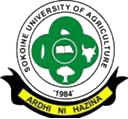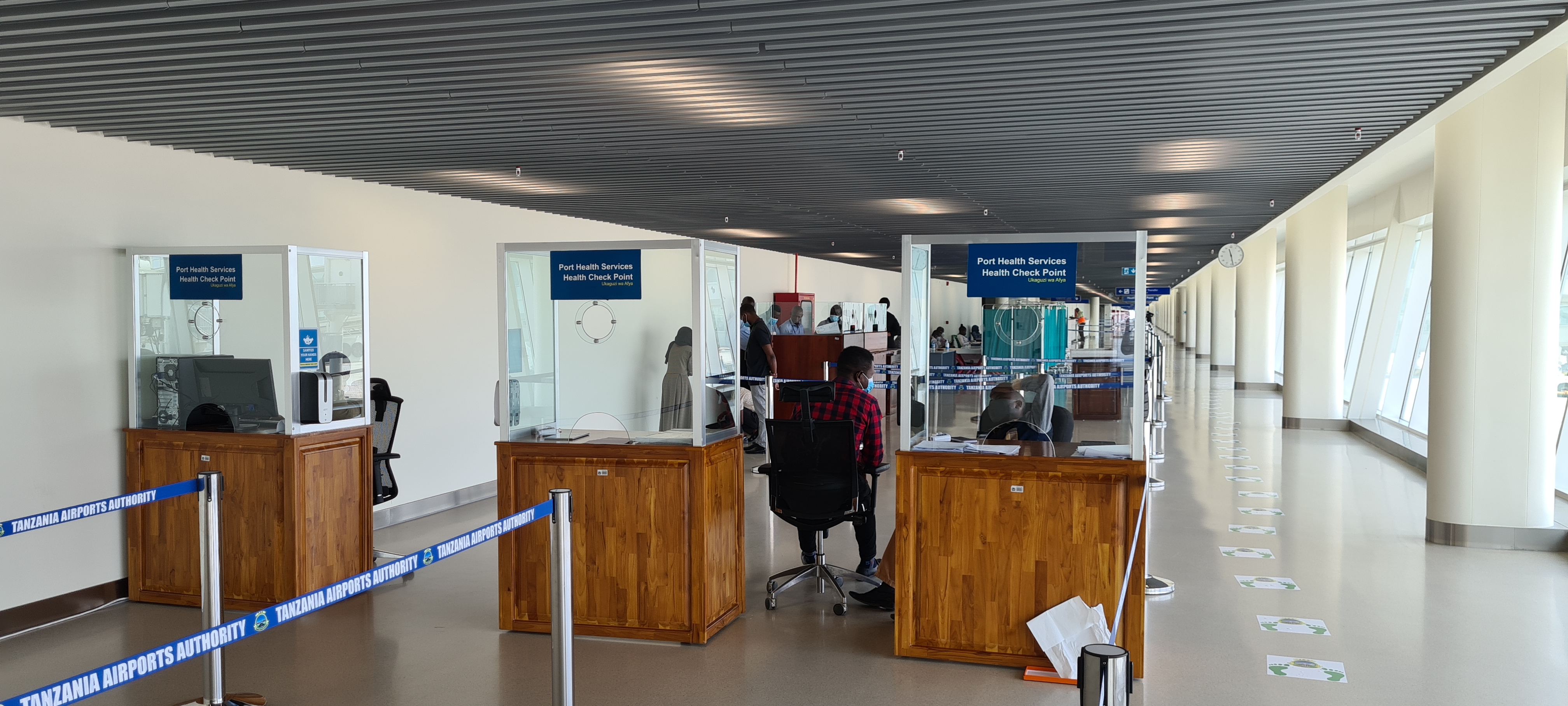Since 2019, SACIDS has been collaborating with the Africa CDC in operationising the Africa CDC Frameworks for Event-Based-Surveillance (EBS) and Antimicrobial Resistance (AMR) in the Africa Union Member States.
The following account focuses on the EBS component of the SACIDS-Africa CDC collaboration
THE SACIDS FOUNDATION FOR ONE HEALTH
- SACIDS Foundation for One Health (SACIDS) is a One Health Virtual Institute that links public health and animal health academic and research institutions working on infectious diseases of humans and animals, including anti-microbial resistance, and operating within the African ecosystems
- It was founded in January 2008 as a regional Southern African Centre for Infectious Disease Surveillance
- In 2018, it transformed into “The SACIDS Foundation for One Health”, as a Regional Research and Training Institute of Sokoine University of Agriculture in Tanzania on behalf of its Membership
- The SACIDS Founding Member University and National Research Institutions are in Tanzania, Zambia, DRC, Mozambique and South Africa. SACIDS has collaborated with medical and veterinary institutions in other parts of Africa on as needed basis. The founder external partner institutions are the London School of Hygiene and Tropical Medicine, the Royal Veterinary College, London, the Pirbright Intitute, UK and the International Livestock Research Institute (ILRI).
- SACIDS has a global network of partners from the UK, Europe, Japan, Brazi, USA and Canada on the basis of a SACIDS led South-North Smart Partnership by formal agreement.
- The SACIDS operations in Zambia and Tanzania has led to the World Bank designating the University of Zambia and Sokoine University of Agriculture (in partnership with Muhimbili University of Health and Allied Sciences) as Africa Centres of Excellence in Infectious Diseases of Humans and Animals in Eastern and Southern Africa.
- SACIDS, is a semi-autonomous entity, led by an Executive Director supported by a Secretariat with a primary unit for Training Programme, Finance and Procurement and Communication plus a pool of researchers and university academicians derived from its Member Institutions
- The scientific programme of SACIDS is subject to regular scrutiny and guidance by an international Independent Scientific Advisory Board that reports to the SACIDS Governing Board. Currently the membership of the SACIDS ISAB comprises scientists derived from South Africa, Uganda, Congo-Brazzaville, Nigeria, UK, Norway, Japan, Hong Kong and Australia.
- The SACIDS One Health core business is in 4 inter-linked parts, namely:
- Training:
- Postgraduate Training to MSc, PhD and Postdoctoral Fellowship, for which SACIDS One Health has 157 alumni, comprised of 19 Postdocs, 41 PhDs and 97 MSc. By December 2020, these had published 382 research papers; Targeted short term training for professionals in specific subjects, summer school for defined themes and in transformative leadership targeting different levels from PhD students right through to Vice-Chancellors and Heads of National Institutions.
- Research:
- One Health research for infectious diseases targeting emerging, re-emerging and endemic infectious diseases as well as antimicrobial resistance in humans and animals
- Hypothesis driven research by which SACIDS applies genomics, analytical epidemiology including modelling and social sciences
- Training:
- Applied and translational research such as developing tools for surveillance and diagnostics, antimicrobial use/abuse and resistance, policy assessment and disease control strategies
- Provision of Expertise to operations by National, Regional and International Authorities:
- Operationalizing the Africa CDC frameworks for EBS and AMR
- Thanks to a $2million grant from Skoll Foundation during early March 2020 (i.e. start of COVID-19 index cases in Africa), SACIDS Foundation was able to provide expert support to national authorities of the DRC, Zambia, Mozambique, and Tanzania to strengthen their response to the COVID-19 pandemic e.g. in surveillance, training and undertaking diagnosis and genomic sequencing
- Membership of technical advisory groups at national level, regional/Continental level (e.g. Membership of the Africa CDC Technical Group of Disease Surveillance, Membership of the AU-IBAR Guiding Group for the AU Animal Health Strategy and globally e.g. GOARN and FAO-OIE
- SACIDS is a founder Member of CORDS (Coordinating Organisation for Disease Surveillance), which links regional disease surveillance networks in Africa, Middle East (with focus on Israel and Palestine Territories), South-east Europe, South Asia and South-east Asia
TRACK RECORD/EXPERIENCE ON STRENGTHENING OF DISEASE SURVEILLANCE SYSTEMS
- SACIDS has experience in managing multi-centre projects with sub-awardees in African countries and to partners beyond Africa. It has managed of portfolio of such projects with a portfolio of about USD30 million over the last 12 years from various external sources, including the Wellcome Trust, Rockefeller Foundation, Ending Pandemics, Skoll Foundation, Fleming Fund, the UK Medical Research Council, the Canadian International Development Research Centre (IDRC), the National Research Foundation of South Africa, the Korea National Institute of Health, the World Bank and the European and Developing Countries Clinical Trials Programme (EDCTP).
- SACIDS has designed, developed and delivered short training courses in terms of workshops and specific-theme based summer schools
- Since 2010, one of the SACIDS research themes has been on developing tools to facilitate involvement of communities and community health workers in the national event-based surveillance system. This has involved developing AfyaData (sacids.org), a specific tool for EBS in humans and animals (One Health)
- SACIDS is experienced in the design and development of the training modules to cater for needs of different levels of health systems:
- Together with Africa CDC and UK-PRHT, SACIDS produced a manual entitled COVID-19 & Community Health Workers, 2-day orientation training (https://africacdc.org/download/orientation-training-for-covid-19-community-health-workers/) and (https://sacids.sua.ac.tz/news/covid-19-community-health-workers/)
- SACIDS has developed EBS training modules for all levels of health systems in Africa i.e. community, health facility, sub-national and national levels
- SACIDS has conducted event-based surveillance (EBS) situation analysis in the Eastern and Central RCC to document best practices and gaps that should be addressed to strengthen EBS in the region-part of this activity was sub-contracted to ECSA-HC.
- During the COVID-19 pandemic, its scientists were able to provide diagnostic, epidemiological, surveillance, digital and genomics expertise to the national preparedness and response activities of the National Authorities in the DRC, Mozambique, Tanzania and Zambia
- In response to COVID-19 pandemic, SACIDS collaborated with Ministry of Health in Tanzania in digitizing the Points of Entry surveillance (afyamsafiri.moh.go.tz)
- SACIDS has provided Cameroon with technical support to adapt EBS training modules, trained Trainers of Trainers from the national and sub-national levels, and Community Health Workers to enhance surveillance of COVID-19 and other diseases of epidemic potential
- SACIDS has provided Uganda with technical support to adapt 3rd edition of IDSR and trained the Trainers of Trainers on event-based surveillance for infectious diseases including COVID-19.
- SACIDS has provided technical support to Mozambique on use of digital technology (AfyaData-afyadata.sacids.org; www.sacids.org/news/highlights-afyadata-training-mozambique) and trained Community Health Workers to enhance early detection and reporting of health signals (including those for COVID-19) at the community level
- SACIDS has provided technical support to Tanzania in the development of EBS guidelines and standard operating procedures and National COVID-19 Response Plan
- SACIDS is collaborating with the sectoral ministries (ministries responsible for human and animal health, natural resources, Prime Minister’s Office and President’s Office Regional Administration and Local Government) in Tanzania to develop National One Health digital platform for early detection, timely reporting and prompt response to signals of infectious diseases transmissible between animals and humans.

PARTNERSHIPS AND ROSTER
SACIDS has been working collaboratively with many groups, including the community to promote the concept of One Health community level security as a fundamental basis for national and global health security
- At the National Level, it works with Ministries and related agencies, including and Local Government Authorities (LGAs) responsible for human health, animal health
- At theregional level, SACIDS contributes to the objectives of the Southern African Development Community (SADC) and the East African Community (EAC) and collaborates with the implementing agencies such as the East, Central and Southern African Health Community (ECSA-HC) and Amref Health Africa
- At the Africa Continental Level, SACIDS collaborates with the Africa CDC and the Inter-African Bureau for Animal Resources (AU-IBAR) both of the African Union
- SACIDS has collaborative South-South-North smart partnerships with academic and research institutions of international reputation in the field of infectious diseases One Health e.g. Institutions from beyond Africa include London School of Hygiene and Tropical Medicine, Roya Veterinary College, Virginia Tech, Osvaldo Cruz (Brazil), Sophia University (Japan).
- To facilitate timely recruitment and management of experts for its collaborative operations, SACIDS has established a roster of different specialities that include:
- Disease and/or AMR surveillance specialists, public health and veterinary specialists, epidemiologists, laboratory specialists, socio-anthropologists, genomics, information, communication & technology, economists, knowledge brokerage, statisticians, laboratory technologists, trainers and language translators
FACILITIES AND TOOLS
- SACIDS has a videoconference facility that supports distance learning through Webinars and virtual meetings
- It has developed a One Health digital disease surveillance tool (branded AfyaData) that supports collection, analysis and interpretation of health related data
- The tool supports collection of georeferenced data that enhances contact tracing and monitoring the trend of health events. In addition, the tool supports continuous real-time data analysis and presentation for prompt actions
- The One Health approach by SACIDS that focuses on community as the primary source for health events data is in line with the Africa CDC’s highest priority for surveillance targeting to accelerate the time to detection and enhance the quality of response to infectious disease outbreaks and other urgent public health threats
- SACIDS has access to laboratory facilities and specialists for handling Class III pathogens and their characterization including genomic sequencing
AFRICAN UNION DUE DILIGENCE COMPLIANT
- Sokoine University of Agriculture that hosts SACIDS has been assessed by the Africa CDC in line with the African Union Grants Manual on Internal Controls; Accounting and Finance system; Grant Programmatic implementation; and Procurement. The key observations included the following:
- Presence of functional internal finance control system
- Adoption of the International Public Sector Accounting Standards to enhance the level of its accountability and its norms are endorsed by International Financial Reporting Standards
- Presence of a computerized Vote Book Financial Management system which ensures that every operation is documented and traceable for matter of compliance with the Financial Regulations and audit requirements







